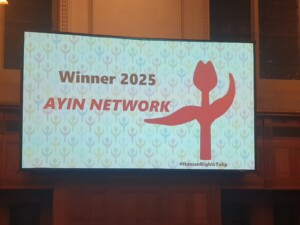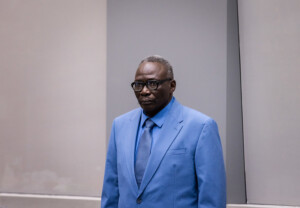UK donates GBP3 million for food aid in Sudan
On 18 September, the UN World Food Programme (WFP) received GBP3 million (about $3.9 million) from the United Kingdom Department for International Development (DFID) for its cash and voucher assistance programme supporting conflict-affected communities in Sudan.
WFP plans to use GBP2 million ($2.6 million) to support 220,000 displaced across Darfur with vouchers for four months, helping them to purchase a wide variety of food items from local shops.
The remaining GBP1 million will be used to top up a contribution of GBP2.2 million that WFP received early this year for the launch of a cash assistance programme, the UN Office for the Coordination of Humanitarian Affairs (OCHA) reports in its latest weekly bulletin.
On 18 September, the UN World Food Programme (WFP) received GBP3 million (about $3.9 million) from the United Kingdom Department for International Development (DFID) for its cash and voucher assistance programme supporting conflict-affected communities in Sudan.
WFP plans to use GBP2 million ($2.6 million) to support 220,000 displaced across Darfur with vouchers for four months, helping them to purchase a wide variety of food items from local shops.
The remaining GBP1 million will be used to top up a contribution of GBP2.2 million that WFP received early this year for the launch of a cash assistance programme, the UN Office for the Coordination of Humanitarian Affairs (OCHA) reports in its latest weekly bulletin.
According to WFP, cash vouchers provide families with preferred food items they can purchase from local traders, and also boost the local economy, helping to stimulate markets by engaging traders that buy from local farmers and markets.
Overall, 592,000 displaced people in Darfur region are supported through cash vouchers and other forms of cash-based assistance, according to WFP. The food items available under the cash voucher system are, millet, sorghum, wheat, wheat flour, rice, red lentils, macaroni, dates, dry okra, dry tomatoes, onions, sugar, salt, groundnut oil, milk powder.
WFP has a monitoring mechanism, which monitors market prices on a weekly basis, and voucher values can be adjusted based on the findings of the monitors when commodity prices increase or decrease by over 20 per cent.
WFP first launched its voucher based food assistance in 2009 in central and eastern Sudan. The programme has since expanded to reach the Darfur region where it currently supports more than half a million food-insecure displaced people who purchase food from more than 180 local traders.
Thanks to DFID support, WFP Sudan has also successfully introduced electronic vouchers via WFP corporate solution SCOPE, supporting over 30,000 displaced people in Darfur. DFID also allows WFP Sudan to launch the first cash pilot via prepaid cards this year.











 and then
and then